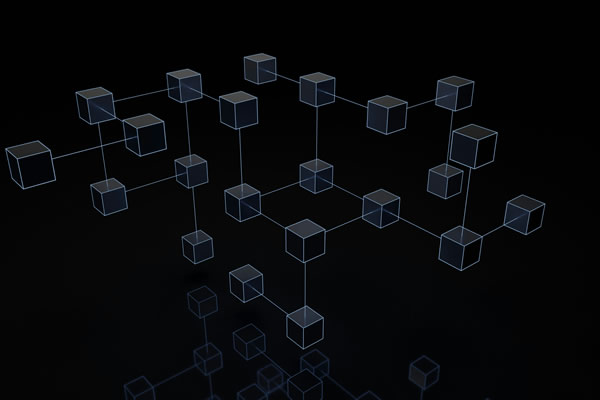The first conference of the European Fact-Checking Standards Network (EFCSN) took place in Brussels on 29 October, marking a significant milestone for European fact-checkers as they unite to tackle the rapidly evolving challenges of disinformation. Two years since its inception, the EFCSN has grown into a community of 53 verified members across 31 countries, united in their commitment to transparency, ethical standards, and the fight against disinformation. This event highlighted the power of collaboration, resilience, and innovation within the fact-checking community.
The role of foreign actors
The influence of foreign actors, mainly from Russia, was a key issue at the EFCSN conference, highlighting the constant attempts to destabilise the discourse in the EU. The Doppelganger Operation involved cloning trusted news and government websites to spread anti-Ukrainian, pro-Russian narratives, often using typographical look-alikes of real domains. Meanwhile, Operation Overload used fake news and social media tags to flood over 800 organisations, mainly in Europe, with requests to fact-check fabricated stories aimed at discrediting Ukraine, France and Germany. Both operations have highlighted the urgent challenge for EU media and fact-checkers to counter an increasingly pervasive Russian disinformation strategy.
Another example came from Hungary, where there is a worrying lack of political fact-checking due to government influence, while pro-Russian propaganda circulates freely. Tensions are also high in Georgia, where disinformation and conspiracy theories influenced recent elections. Fact-checkers in these regions are increasingly vulnerable to harassment, adding a layer of personal risk to their already demanding roles.
Russian and Chinese actors remain active in shaping public opinion and destabilising political discourse across the EU. Concerns were also expressed about an increasing burden of Chinese disinformation campaigns over the next five years. In addition, discussions highlighted that, besides foreign actors, a significant source of disinformation in Europe comes from political leaders themselves.
AI and disinformation
The rise of generative AI has added new layers of complexity to the disinformation landscape. While AI can improve data analysis and streamline fact-checking processes, it presents several challenges, as AI tools can be used to produce disinformation narratives. In particular, generative AI technology allows for rapidly producing realistic audio, images, and text, significantly complicating fact-checkers’ work. AI-generated audio poses one of the most significant challenges, as it can imitate voices with disturbing accuracy. While AI tools can assist fact-checkers by automating parts of their workflow, they also act as amplifiers of false narratives. However, despite AI’s capabilities, AI-generated content is currently not the dominant source of disinformation; decontextualised information and selectively framed narratives remain the leading causes.
Another critical challenge is that AI models are often trained using fact-checking databases without compensation to the creators. That raises ethical concerns about data ownership and the sustainability of fact-checking resources. Conference speakers stressed the need for transparency from tech companies and discussed how fact-checkers could be compensated for using their work in AI training.
Prebunking and psychological approaches to combat disinformation
Prebunking has emerged as an effective approach to building resilience to disinformation. This strategy involves proactive efforts to equip individuals with the critical thinking skills to identify disinformation before encountering it. Prebunking is particularly important for communities with low trust in traditional media sources, where disinformation often finds its strongest foothold. By engaging these groups early, prebunking aims to build trust, and it is a way to counter conspiracy thinking before it becomes entrenched. However, directly challenging conspiracy theories can be complex; efforts to debunk them often lead to accusations of being part of the conspiracy – a phenomenon known as ‘conspiracy reasoning’. Prebunking must, therefore, be carefully designed to avoid reinforcing mistrust while effectively empowering communities to identify and resist disinformation.
Harassment and safety concerns
A prominent theme of the conference was the harassment and threats faced by fact-checkers, particularly from far-right groups and authoritarian regimes. Journalists and fact-checkers from countries such as Croatia, Georgia and Portugal gave harrowing accounts of physical threats, psychological strain and relentless pressure. Georgia’s recent and controversial electoral context has intensified anti-EU rhetoric despite widespread public opinion support for EU membership. Following the disputed election results, Georgian fact-checkers are now facing legal threats and the possibility of severe restrictions that could, in a worst-case authoritarian scenario, curtail their services – a significant blow to freedom of information. Far-right and neo-Nazi activists have increasingly become a significant source of harassment and threats against fact-checkers and journalists. These groups often use aggressive tactics to intimidate those who challenge their narratives, using social media platforms to launch smear campaigns and spread false information. Portuguese fact-checkers shared their response to escalating tensions, explaining how they have increased newsroom security and introduced psychological support to protect their teams from these growing risks.
Collaboration and transparency
The conference underlined the crucial role of transparency and cooperation in the fight against disinformation. « Transparency is our shield; collaboration is our weapon, » said Clara Jiménez Cruz, Chair of EFCSN (Maldita, Spain). These principles are not just ideals but essential tools that empower fact-checkers to withstand escalating threats. As political leaders and tech platforms struggle – or sometimes fail – to contain disinformation, fact-checkers often find themselves as the last line of defence. However, they can continue to counter misleading narratives through concerted efforts and effective open communication.
New tools and challenges
The discussions highlighted that while fact-checking is becoming more challenging, the community needs tools to meet these challenges, such as the databases developed within the EFCSN community on EU elections and climate change. These databases also address a characteristic of disinformation: its ability to circulate from one country to another with minor changes. Another characteristic is that disinformation always follows the flow of information.
To the extent that platforms are involved in spreading disinformation, it is crucial to recognise their role as both facilitators and battlegrounds in the fight against misleading narratives. They must, therefore, act more responsibly. EU legislation will regulate platforms more strictly, including the Digital Services Act and the Code of Practice on Disinformation (which will evolve into a binding code of conduct). In the meantime, fact-checkers must engage with policymakers and platforms to ensure they have the resources and safeguards they need to do their work.
At the University of Bergen, as part of the NORDIS hub – a consortium of researchers and fact-checkers from Denmark, Norway, Sweden, and Finland – we conducted research on the challenges discussed during the first EFCSN conference. Here are some complementary readings.
- Journalism and Fact-Checking Technologies: Understanding User Needs (Communication+1)
- Outsourcing, Augmenting, or Complicating: The Dynamics of AI in Fact-Checking Practices in the Nordics (Emerging Media)
- Screens as Battlefields: Fact-Checkers’ Multidimensional Challenges in Debunking Russian-Ukrainian War Propaganda (Media and Communication)
- Striking the Balance in Using LLMs for Fact-Checking: A Narrative Literature Review (Lecture Notes in Computer Science, MISDOOM Proceedings)
- Transparency and fact-checking in open societies (Journalism)



